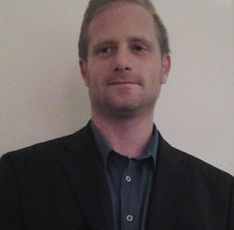Introducing the complexity revolution
My primary interest is identity and cultural evolution as a complex adaptive system, a focus that has led me through multiple disciplines both objective and subjective. These all seemed to point me in the same direction, to the conclusion that the emerging complexity paradigm holds revolutionary potential of unprecedented breadth. Already, we have seen Complexity make fruitful inroads in healthcare, education, business management, international development, and elsewhere, while it remains fundamental to such fields as climate science and urban planning. Soon, we should hope, it will also make waves int he worlds of politics and economics.
With Common Sense Complexity, I want to share the nature and implications of the complexity paradigm, as well as its potential impact on cultural evolution, power, and human self-organisation. With so much at stake – global warming, resource depletion, the loss of trust in institutions, etc – it is vitally important that we understand the dynamics of such tumultuous paradigm shifts, so that we may both effectively communicate this new paradigm and have realistic expectations of the challenges ahead.
We are in a period of transition like no other.
Since the beginning of the modernist era, specialisation in the sciences has been hugely beneficial to humanity through the concentration of skills and knowledge into distinct communities and cultural systems. Some turned out to be highly amenable to empirical study – the ‘hard sciences’ – revealing a convergent objectivity which accelerated the synthesis of knowledge. That’s not to say that all scientific paradigms transitioned smoothly; psychological, generational and institutional factors ensure that orthodoxy will always, and beneficially, fight-back before finally dying out.
Other disciplines did not fare so well however, and it soon became clear that objectivity in the ‘soft sciences’ was altogether more elusive. Modernism’s continued effort in this regard was successfully interrupted in the mid-20th Century by the wave of postmodernism, a paradigm encompassing the arts, history, literature, anthropology, sociology and far beyond. Advances in communication technology inspired and facilitated the emergence of social histories, minority voices, a rejection of reductionist objectivity and an acknowledgement of the validity, or even inherent “truth”, of all subjectivities.
At their extremes, modernism and postmodernisms’ exclusive emphasis on objectivity and subjectivity respectively were equally flawed and misguided. Yet in expanding the boundaries and diversity of discourse, postmodernism at least re-established the necessity for including the subjective within concepts such as identity, the self, and power. In doing so, it both reflected and contributed to a period of great social upheaval and civic emancipation within the cultural system in which it spread.
The legacy of the complexity paradigm
That both the hard and soft sciences may be best described by network and complex adaptive system theory is an idea that is beginning to gain traction. This idea suggests that the lasting legacy of the complexity paradigm will be most powerfully conceived as a synthesis of the Modernist/Post-modernist paradigms; a social paradigm shift, rather than simply a scientific one. For while advances thus far have given us comfort, modern medicine and the power to mitigate the cruel whims of nature, they have had little qualitative effect on the basic model of top-down self-organisation of society.
From religion and theology, to the nation state and political philosophy, to corporate institutions and macroeconomics, history is the story of institutionalised, ideological self-organisation whose authority is founded on the perceived control over all manner of complex systems: the cosmos, weather, society, markets, etc. Until recently, these ruling ideologies have monopolised our cultural environment, defining our shared identity and shaping our cultural normatives.
Complexity can change all of that, its conclusions objectively undermining this authority in all such models of self-organisation. Complexity can be to politics and economics as the early sciences were to religion: an inclusive framework capable of creating a bottom-up shared identity bound by humility and shared methodology, rather than arrogance and fear of a manufactured ‘other’.
The challenge ahead
That the complexity paradigm will play out in an increasingly global cultural system is exhilarating – it’s universality hinting at the possible elimination of the ‘other’. Yet it’s also terrifying, since the scale of global inequities thus revealed suggest that those in power do not have much time left to pro-actively adapt. The convergence of global political and economic cultural systems is removing crucial checks and balances, raising the prospects of global cascades (such as the recent financial crisis) to dangerous levels. We risk insurmountable moral and conceptual divergences which, in a globalising yet politically centralising world, pose significant systemic threats for the environment, the global poor, and the disenfranchised.
Our best hope for a peaceful transition is for complexity to inspire the mobilisation of the multitude to counteract en-masse, a la Postmodernism, the cultural saturation of outdated ideological influence. No silver bullets, no vanguard taking powers’ place. Instead, the complexity paradigm will bridge humanity’s historical and arbitrary divides and allow everyone to finally relate to one another in the same language. We are about to witness the greatest revolution history has ever seen, and if successful, perhaps the most important there ever will be.
Click here for further resources introducing complexity theory
Hello & Welcome

Welcome to Common Sense Complexity, a consultancy service for people and organisations struggling to adapt to the ever increasing uncertainties of the modern world. Pro bono work is available for "establishment" politicians. You need it.
Nb. Sometime I swear in my blogs and social media. I don't believe anything is gained by restraining anger at things worth getting angry about. Be assured however, I am always a consummate professional in professional contexts (and no life should be monopolised as such)
